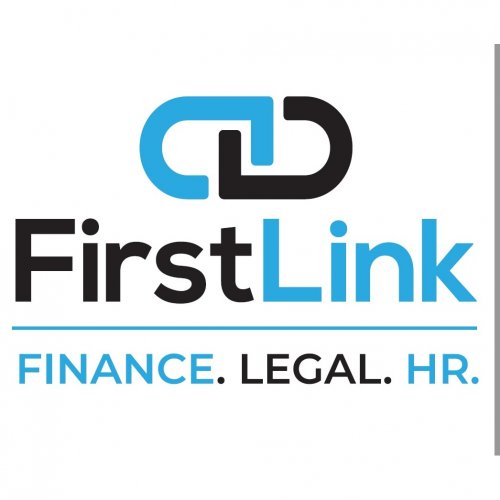Best Patent Lawyers in Port of Spain
Share your needs with us, get contacted by law firms.
Free. Takes 2 min.
List of the best lawyers in Port of Spain, Trinidad and Tobago
About Patent Law in Port of Spain, Trinidad and Tobago
Patent law in Trinidad and Tobago is a critical legal area structured to protect inventions by granting inventors exclusive rights to their creations. The capital city, Port of Spain, serves as the hub for legal activities concerning patents. Within Trinidad and Tobago, the administration and enforcement of patents fall under the jurisdiction of the Intellectual Property Office (IPO), a division of the Ministry of the Attorney General and Legal Affairs. The framework for patent law is aimed at encouraging innovation by ensuring that inventors can benefit from their inventions without the immediate risk of imitation by competitors.
Why You May Need a Lawyer
There are several common scenarios where individuals and businesses might require legal assistance with patents in Port of Spain:
- Filing a Patent Application: The process can be complex, requiring precise documentation and claims that a lawyer can help facilitate.
- Patent Infringement Issues: If you believe someone is unlawfully using your invention, legal counsel is essential to enforce your rights.
- Defending Against Infringement Claims: If you are accused of patent infringement, a lawyer can help defend your case and negotiate settlements.
- Licensing Agreements: Legal expertise is invaluable in drafting and negotiating terms that protect your interests.
- Portfolio Management: Businesses may need help managing and strategizing their patent portfolios to maximize value and market position.
Local Laws Overview
Patent laws in Trinidad and Tobago are governed primarily by the Patents Act, which aligns with international standards such as the Patent Cooperation Treaty (PCT). Key aspects include:
- Patentability Requirements: An invention must be new, involve an inventive step, and be capable of industrial application.
- Protection Duration: Patents are generally protected for 20 years from the filing date if renewal fees are paid.
- Exclusive Rights: Patent holders have the right to prevent others from making, using, or selling the patented invention without permission.
- Enforcement: The High Court of Port of Spain has the authority to enforce patent rights and adjudicate disputes.
Frequently Asked Questions
What is a patent?
A patent is a legal right granted for an invention, providing the owner with exclusive rights to use, sell, and license the invention for a specified period.
How long does it take to get a patent in Trinidad and Tobago?
The process can take several years, depending on the complexity of the invention and the current workload of the Intellectual Property Office.
Can I apply for a patent on my own?
While it is possible, it is advisable to seek legal assistance to ensure all requirements are met and to avoid procedural errors.
What is the cost of filing a patent application?
Costs can vary based on the type of invention and legal fees, including government filing fees and possible international application costs under the PCT.
Do patents apply internationally?
Trinidad and Tobago patents are territorial. For protection in other countries, separate applications must be filed, although the PCT provides a streamlined process for international applications.
How can I check if an invention is already patented?
You can conduct a search through the Trinidad and Tobago Intellectual Property Office or use international patent databases.
What should I do if someone infringes on my patent?
Consult with a legal professional to explore enforcement options such as legal action or settlements.
Can I license my patent to others?
Yes, patent holders can enter licensing agreements, allowing others to use the invention while retaining ownership.
What happens when a patent expires?
Once a patent expires, the protection ends, and the invention enters the public domain, allowing anyone to use it freely.
Do I need a prototype to apply for a patent?
A prototype is not required for the application; however, you must fully disclose the invention and its working method.
Additional Resources
For further assistance, consider reaching out to these resources:
- Trinidad and Tobago Intellectual Property Office: Primary government body for patent applications and queries.
- Local Law Firms Specializing in Intellectual Property: Professional legal services can provide tailored advice and support.
- World Intellectual Property Organization (WIPO): Offers information and resources for international patent applications.
Next Steps
If you require legal assistance with patents in Port of Spain, consider the following steps:
- Identify whether your needs relate to filing, enforcement, or legal defense.
- Seek recommendations for reputable patent attorneys or firms that specialize in intellectual property law.
- Contact the Trinidad and Tobago Intellectual Property Office for preliminary inquiries.
- Schedule consultations with legal professionals to discuss your specific needs and obtain estimates for services.
Patents are pivotal in protecting intellectual property, and engaging a qualified legal advisor is essential to navigate the complexities involved effectively.
Lawzana helps you find the best lawyers and law firms in Port of Spain through a curated and pre-screened list of qualified legal professionals. Our platform offers rankings and detailed profiles of attorneys and law firms, allowing you to compare based on practice areas, including Patent, experience, and client feedback.
Each profile includes a description of the firm's areas of practice, client reviews, team members and partners, year of establishment, spoken languages, office locations, contact information, social media presence, and any published articles or resources. Most firms on our platform speak English and are experienced in both local and international legal matters.
Get a quote from top-rated law firms in Port of Spain, Trinidad and Tobago — quickly, securely, and without unnecessary hassle.
Disclaimer:
The information provided on this page is for general informational purposes only and does not constitute legal advice. While we strive to ensure the accuracy and relevance of the content, legal information may change over time, and interpretations of the law can vary. You should always consult with a qualified legal professional for advice specific to your situation.
We disclaim all liability for actions taken or not taken based on the content of this page. If you believe any information is incorrect or outdated, please contact us, and we will review and update it where appropriate.












